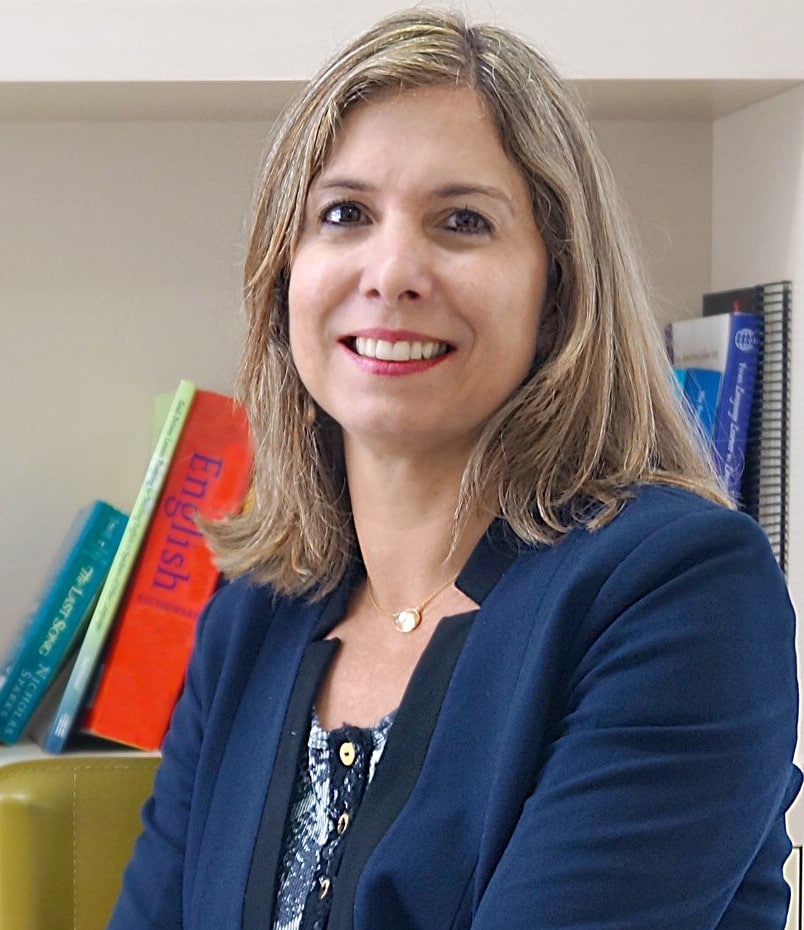The native versus non-native teacher dichotomy – Challenging Mental Models
I saw a post recently on Facebook advertising a position for a native speaking teacher in a Brazilian language program. The post appeared on the page of a closed group for English teachers in Brazil. The reaction to the post was immediate. People wanted to know why the program was only hiring native speakers and questioned this practice. The person in search of this native teacher justified the restriction saying that it was for advanced groups, that the program already had non-native teachers, and that this specific job ad was to fill the slots for native teachers. Soon after, a group participant joined the discussion defending the practice of hiring a native teacher because, after all, given the same experience and qualifications, of course a native teacher is better than a non-native one. Needless to say, a long discussion ensued, with many people reacting against the job ad. I requested that the Facebook group administrators adopt the practice of many teacher associations, such as TESOL, which will not post ads for jobs that are exclusive to native teachers. And so they did.
Obviously dissatisfied with the outcomes, the same person who had defended the job ad (a Brazilian, by the way) posted a question on the same Facebook page, asking members to give their opinion about whether they thought that, given the same experience and qualifications, a native speaking language teacher was always better than a non-native one. About a third of the people answered what I believe to be the best practice: that they would engage the two candidates, native and non-native, in a comprehensive teacher selection process, involving resume analysis, interviews and demo classes, and then would select the one most suited for the job. However, I was surprised that many answered that they would definitely hire the non-native teacher because they are usually better at teaching English to Brazilians than native ones. This means they wouldn’t even consider the native one, not even for an interview. I believe that this reaction against native teachers is as pervasive as the usual negative reaction against the non-native ones. What we as professionals have to uphold is that we have equal opportunities, not that we have a reserved market and exclude all native teachers. Coincidentally, just as I was writing this post, I came across Silvana Richardson’s brilliant plenary at IATEFL on this topic and this was exactly her conclusion – we have to fight the native versus non-native dichotomy and join forces to seek equality. As expected, a few people said they would hire the native teacher for conversation and advanced classes, and the non-native teacher for beginners. This is still a long-held belief that I will discuss below. Yet a few other people said that, given the same conditions, they would definitely hire the native teacher, no doubt about it. A native speaker of English (at least judging by the name and the comment) said they would never learn Portuguese from a non-native speaker beyond the basic level.
A few days after this experience with the Facebook exchanges, our program held our graduation ceremony and one of the graduating students gave a speech. He started his studies with us in the Teens course, at the age of 11, and had just concluded the Advanced Course, at the C1 level. When he opened his mouth to speak, we were all flabbergasted. Not only did he have a beautiful, strong voice, he also had no noticeable accent. His English was perfect. This guy had never lived abroad and had only had one native teacher during his five years studying with us, and yet he didn’t have a noticeable accent! This coincides with the recent findings of Levis, Sonsaat, Link, and Barriuso (2016), which showed that having a native teacher did not result in students’ higher attainment of pronunciation as compared with the control group, instructed by a non-native teacher. The authors conclude:
“…the results offer encouragement to nonnative teachers in teaching pronunciation, suggesting that, like other language skills, instruction on pronunciation skills is more dependent on knowledgeable teaching practices than on native pronunciation of the teacher.”
All this got me thinking about why in this day and age, with all the world Englishes and the absolute lack of evidence that having only native teachers leads to better attainment in the language, the native speaker fallacy (Phillipson, 1992) is still so alive. Based on the comments on Facebook and others that I have heard or read in the past few years, here are what I find to be the three main reasons behind these mental models, that is, “the images, assumptions, and stories that we carry in our minds of ourselves, other people, institutions, and every aspect of the world” (Senge et al., 2012, loc. 2278).
- First of all, I believe it has to do with one’s idea of what the role of the teacher is. If one believes that the teacher is the sole owner of knowledge and that it is their role to impart this knowledge to their students, then maybe a native speaker might be better equipped to do this because more years, months, days, and hours of contact with the language will lead to more knowledge to be transferred to students. It is the deficit model in which the teacher has something that the student does not have. Within a different paradigm, one in which the teacher is seen a mediator of learning, the person responsible for providing affordances in language learning, then the idea of the native speaking teacher as the ideal teacher becomes senseless because the teacher will provide the students with resources to facilitate their acquisition of the language, one of the resources being the access to different models of the language, native or non-native. We must recognize that nowadays we are not short of resources to expose students to English in all its varieties, by way of songs, videos, podcasts, movies, TV series, online games, you name it! In this sense, the native speaking teacher as a model to students becomes irrelevant.
- Second, it has to do with students’ and teachers’ beliefs and mindsets about language learning. What is behind the idea that a non-native teacher cannot be as effective as a native one is the belief that one cannot learn a second or foreign language well enough to teach it effectively. It’s as if there is a threshold that we believe we can never cross. Medgyes (1994) relates this to an inferiority complex, a belief that non-native teachers’ knowledge is always inadequate and that they will never measure up to the standards. How can we non-native teachers, excellent language learners ourselves, defend this idea?
- Third is the discussion of who owns English and who is, after all, a native speaker of English. As is mentioned repeatedly in every article, talk or discussion on this subject matter, English has crossed borders and nationalities and, as a lingua franca, belongs to the whole world. As it is the main language of communication in professional and academic circles internationally, it does not belong to its native speakers anymore. I would argue that a highly proficient, C2 level non-native teacher like many I know might be better equipped to prepare students for international communication in English than a native one. Native speakers tend to take the language for granted. They are not curious to know what speakers of other varieties of the language use because they tend to value their own variety better. They might not notice nuances in the language of different speakers that proficient non-native speakers notice. That’s what good language learners do – notice. For example, an American teacher in my program always corrected non-native teachers when they said “television” with the stress on the third syllable, explaining that this was Portuguese interference. The right way to say it was to stress the first syllable (/ˈtel.ɪ.vɪʒ.ən/). Watching BBC one day, I heard the presenter pronouncing the word with the stress on the third syllable (/ˌtel.ɪˈvɪʒ.ən/). I mentioned this to the American teacher and she was surprised. As an American, she would probably not watch BBC and even if she did, she would probably not notice the difference in pronunciation the way I did because we tend to take our native language for granted. I might not be a native speaker of English in the strict sense of the word, but maybe I’m more cognizant of English as an International Language than my American friend is. In fact, Chia Suan Chong provides five reasons why native speakers need to learn to speak English internationally (Chong, 2016).
As a community of practice, we proficient, qualified and experienced non-native teachers of English in Brazil and around the world have to join forces to fight the beliefs, mindsets and mental models examined above. As Peter Senge et al. say in the book Schools that Learn (Senge et al, 2012), mental models are tacit and exist below the level of awareness. Unexamined mental models limit people’s ability to change. Thus, we have to examine and challenge these mental models if we want to change. I hope my three challenges above help keep this conversation going.
References:
Chong, C.S. (2016, March 18). 5 reasons why native speakers need to learn to speak English internationally [Web log post]. English Teaching Professional.
Levis, J. M., Sonsaat, S., Link, S. and Barriuso, T. A. (2016), Native and Nonnative Teachers of L2 Pronunciation: Effects on Learner Performance. TESOL Quarterly. doi: 10.1002/tesq.272
Medgyes, P. (1994). The non-native teacher. London, UK: Macmillam Publishers Ltd.
Phillipson, R. (1992). Linguistic Imperialism. Oxford: OUP.
Senge, Peter, et. al (2012). Schools that Learn: A Fifth Discipline Fieldbook for Educators, Parents, and Everyone Who Cares about Education. New York: Crown Busisness.






